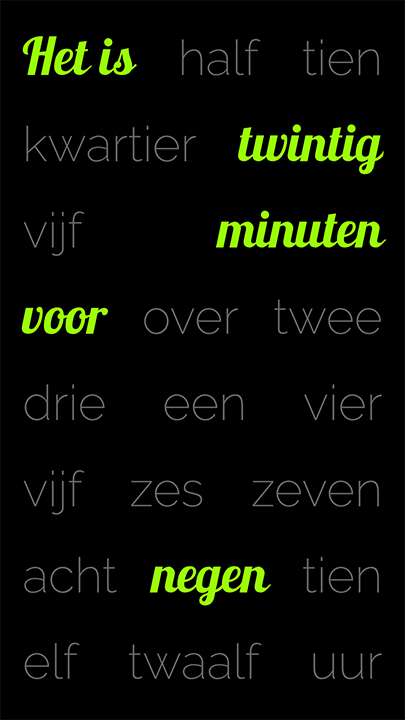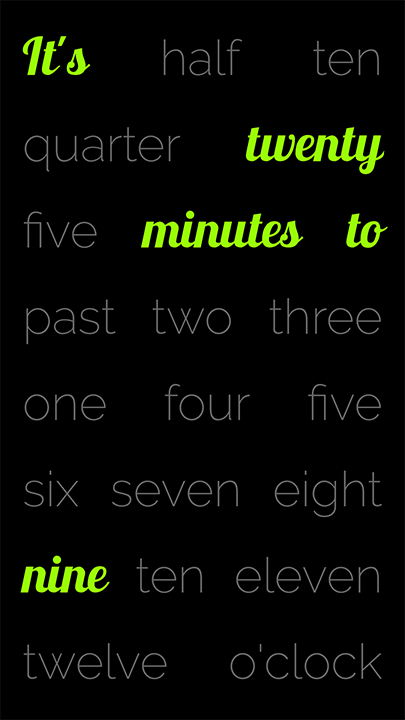Read the statement by Michael Teeuw here.
Help Translating Word Clock
-
@j.e.f.f How @pjkoeleman said I would also prefer a 12 hour layout because all times after 12 sounds strange in German.
Use “Uhr” only when it’s xx:00. The example at 01:15 should be “Es ist viertel nach eins”. So it would be better if you could find a solution for “ein” and “eins” because it sounds much better.
Some examples for better understanding:
- 00:30/12:30 “Es ist halb eins”
- 01:00/13:00 “Es ist ein Uhr” (use “ein” only here)
- 01:05/13:05 “Es ist fünf nach eins”
- 01:15/13:15 “Es ist viertel nach eins”
-
@willfri Thanks! A twelve-hour clock is easier for me to layout as well, so it looks like I’ll go that route. I’ve been thinking about a good way to handle the “s” on the end of “ein” and I think I have a good solution in mind that won’t be a special case just for the German layout.
I’ll post back new screenshots when I make the change.
-
@willfri OK. Here is the German layout, now using a 12 hour clock. I have it properly displaying
ein/eins" in context.Question: Since we’re using 12 hour time instead of 24, is it customary to specify what part of the day it’s in? For example, in the French translation, it would say “Il est cinq heures du matin,” or “It’s five o’clock in the morning.” Similarly you’d append “de l’après midi” for the afternoon, and “du soir” for in the evening.
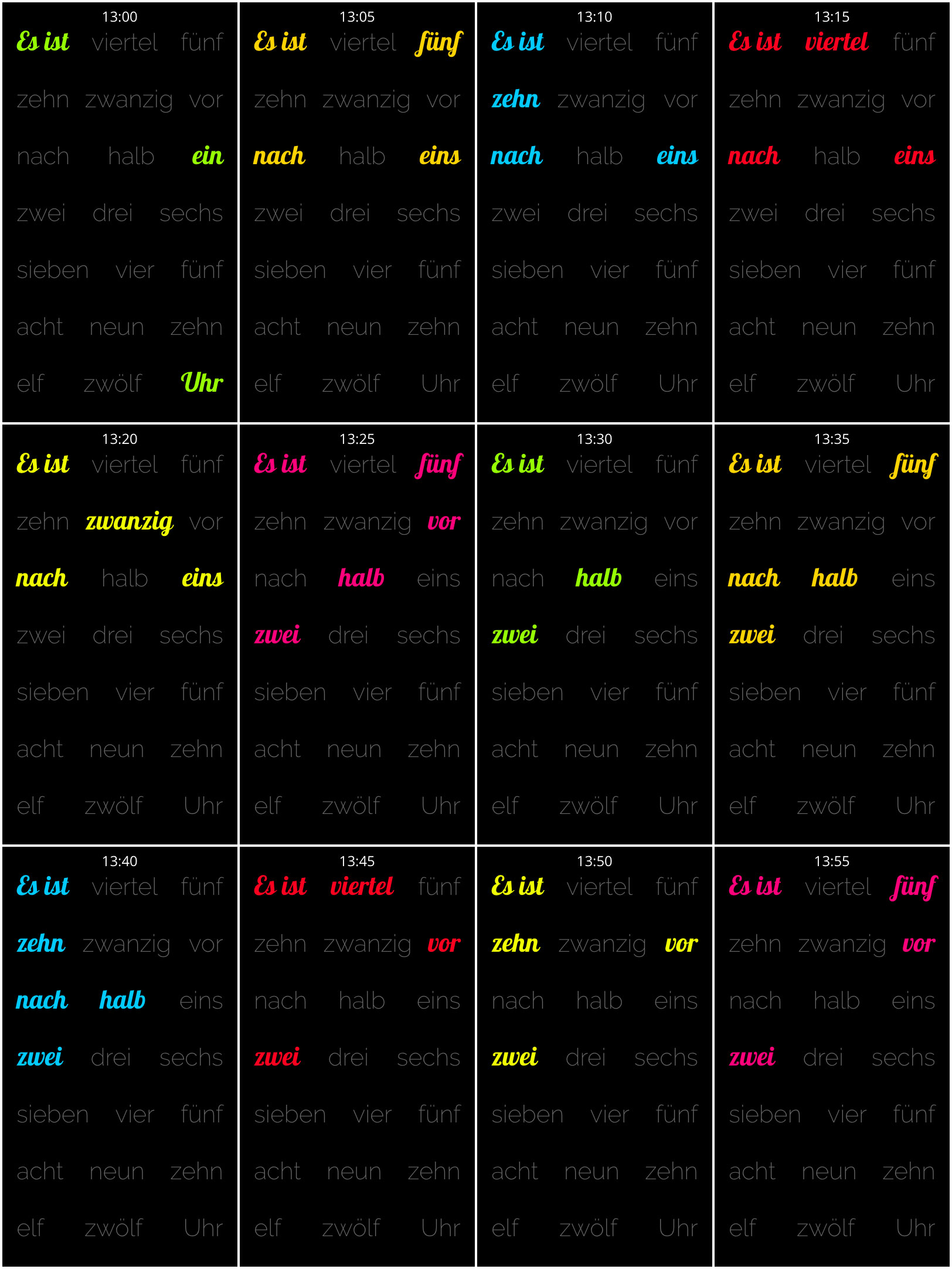
-
@j.e.f.f
I think that is awesome, for a Dutch person. -
@j.e.f.f said in Help Translating Word Clock:
Question: Since we’re using 12 hour time instead of 24, is it customary to specify what part of the day it’s in? For example, in the French translation, it would say “Il est cinq heures du matin,” or “It’s five o’clock in the morning.” Similarly you’d append “de l’après midi” for the afternoon, and “du soir” for in the evening.
I’m not sure if it’s needing. In German it would be
- Night: “Es ist zwei Uhr nachts”
- Morning: “Es ist sieben Uhr morgens”
- Afternoon: “Es ist drei Uhr nachmittags”
- Evening: “Es ist neun Uhr abends”
But for the other times without “Uhr” it sounds in my opinion wired: “Es ist viertel nach zwei nachts”
I don’t know how other German people see it. -
@willfri thanks. I think I’ll leave it as is then.
-
@j.e.f.f There is a shop about 30 minutes drive which sells a word clock, but I’m not sure if it was in german or english. Anyways if I’ll get there I will take a photo so we can see how they arranged the layout.
EDIT: I found a picture online of the shop, looks like they have swissgerman, english and german. I could try to create a swissgerman translation. But switzerland has so many dialects and there are no rules how you write words down as far as I know, because they have to write in german but they speak in swissgerman. I will give it a try.
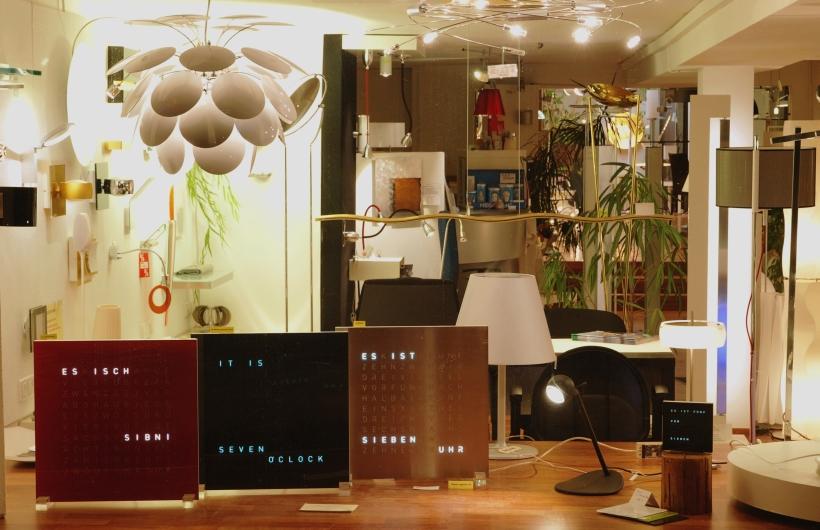
EDIT 2: need to investigate why it’s not showing the characters
äöü, because the font supports it. Some encoding stuff should be the issue.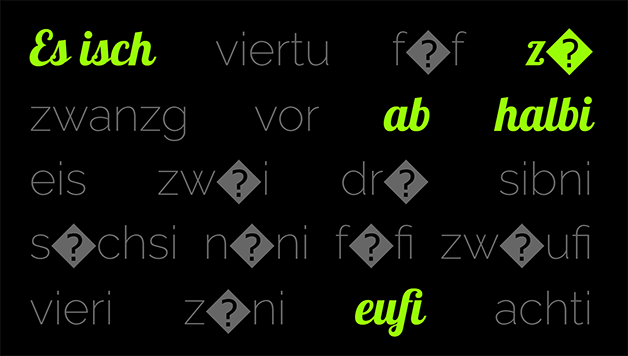
EDIT 3: https://github.com/fewieden/MMM-MyWordClock I have to leave now. Will create the tall version and pr later.
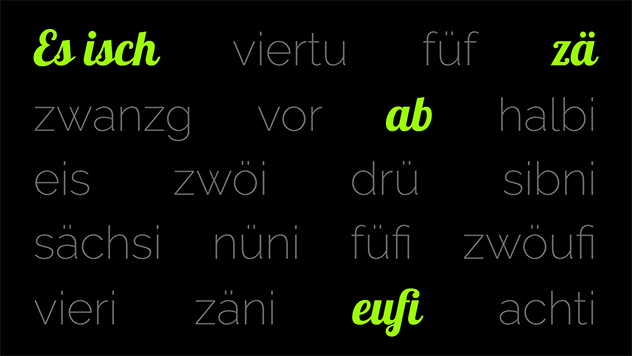
-
@willfri @strawberry-3-141
Is the translation of 13:20 okee, I would say “Es ist zehn vor halb zwei”? -
@strawberry-3.141 This is amazing! Thanks for this. Let me know when the tall version is available and I’ll merge it in
-
@pjkoeleman Yes, “Es ist zehn vor halb zwei” would be better as “Es ist zwanzig nach eins”
